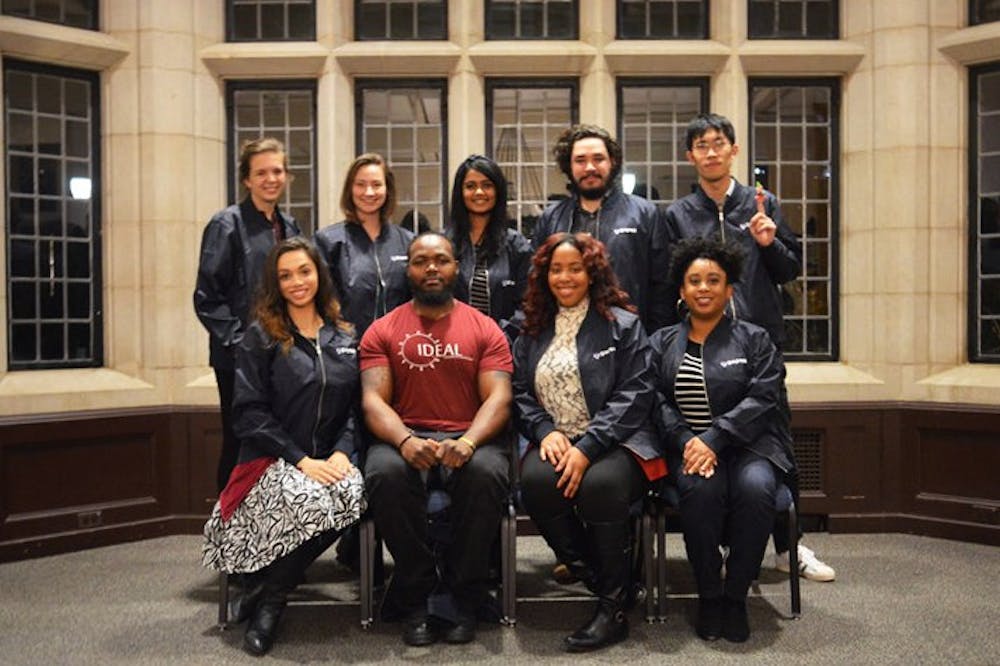
Graduate students have spent more than a year campaigning for a central diversity office, and they only plan to continue pushing forward this semester. In the face of slow progress, student leaders said they intend to expand their support base by engaging undergraduate students and finding further evidence to support the need for this office at Penn.
Helmed by the Graduate and Professional Student Assembly, the campaign first began in February 2017 when the group voted unanimously to establish an office with full-time staff to help “underrepresented students” at Penn. The same resolution, which was drafted by GAPSA’s Inclusion, Diversity, Equity, Access and Leadership Council, included a call for an online bias reporting form, which was successfully implemented this semester.
Betsy Sneller, former GAPSA Equity and Access chair, who graduated with a Ph.D. in linguistics in 2018, said the yearlong campaign for this office has been a "grassroots push" from students and faculty and has been met with "a much slower process within the administration."
“It took quite a long time and quite a lot of conversations for [this need] to be seen [by the administration],” Sneller said. “People have been asking for this for a very long time.”
In an October 2017 interview with The Daily Pennsylvanian, Joann Mitchell, Penn’s chief diversity officer and senior vice president for institutional affairs, said that the University had no plans to introduce a physical office. Earlier this year, she seemingly diverged from her original position, indicating that Penn had begun researching the feasibility of a central diversity office.
GAPSA leaders said they met with an equity and diversity consultant hired by the University to assess the need for a centralized office in April, but have yet to hear back from the results of this review.
IDEAL Council Chair Francisco Saldaña, who is pursuing a master's degree in nanotechnology, noted that since the initial meeting with the consultant, he has not received additional information on the process from Mitchell or the consultant.
“I think that both transparency and communication need to be better structured,” he said.
University spokesman Steve MacCarthy said Mitchell was not immediately available for comment.
GAPSA leaders argue that the implementation of a central diversity office would help to combat a number of issues like decentralization across Penn's 12 schools.
“Many people don’t know their school has a diversity dean, and if they do any work related to diversity at all," GAPSA President and sociology Ph.D. candidate Haley Pilgrim said. "There are people who are theoretically in title to do the work, but would you be able to find them or interview them? You’d probably have a difficult time. So how would we expect the students to know?”
Saldaña agreed, adding that the office could provide better orientation and training for faculty and student leaders, budget resources across student diversity groups, and encourage accountability.
Pilgrim also noted that an office would promote more intersectionality on campus and help the cultural centers reach out to graduate students.
“There’s not a place on campus for people to learn if they want to be allies, there’s not a place on campus for white folks when they see bias go on with their coworkers or colleagues," she said. "It’s a resource for everyone on this campus in a way we don’t currently have. The cultural centers are great resources, but in terms of intersectionality, a CDO would be much more helpful.”
Moving forward, IDEAL’s advocacy committee plans to push for the office by partnering with undergraduate students through various events. They also plan to present data to the Office of the Provost, showing how central diversity offices have proved effective in other Ivy Leagues and peer institutions.
The Daily Pennsylvanian is an independent, student-run newspaper. Please consider making a donation to support the coverage that shapes the University. Your generosity ensures a future of strong journalism at Penn.
Donate







